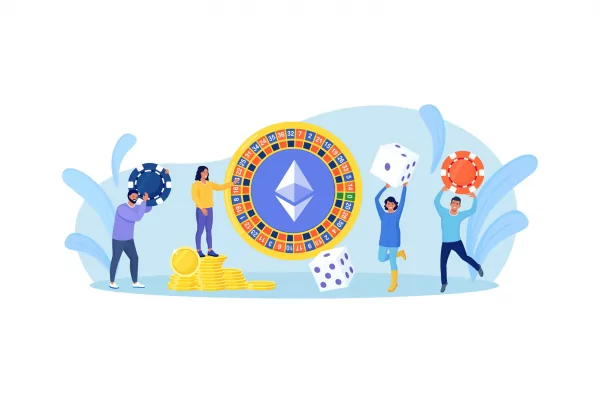
A Bitcoin ATM in Toronto, Canada. The device is somewhat hidden in the corner of a small grocery store. It looks like an ordinary ATM, but you can also deposit and withdraw the digital currency Bitcoin.
You just click on the digital currency you want, then you tell the machine what amount you want to put in Canadian dollars. And then you enter what address you want your bitcoins sent to. It’s all fully automated.
The Bitcoins end up in the digital wallet in just a few minutes – a so-called wallet. Bitcoin and also other cryptocurrencies are not just an investment. People also use them to pay employees or products. Transfers abroad in particular are often faster and cheaper this way. People are also able to use Bitcoin online, but so far only a few merchants accept digital currencies as a means of payment.
Toronto as the Center of the Cryptocurrency Scene
There are more and more Bitcoin ATMs in Canada: There are now around 300. A good third of them are in Toronto alone – a center of the global cryptocurrency scene.
The reason for this ATM uprising is that lots of people do not trust the conventional global money system. The so-called FIAT money which is issued by central banks and has no real equivalent in commodities or coins and can thus be multiplied at will, no longer has a future, in their view.
Today, 99.999% of global trade is conducted with FIAT money. And only 0.001% with digital currencies, thanks to technologies such as a OKX trading bot and crypto exchange platforms.
Indeed, Bitcoin’s performance has been staggering. In 2011, not even ten US dollars had to be spent for one unit of this digital coin. At the end of 2017, the value was at a record high of almost 20,000 US dollars. Only to plummet again within a very short time shortly before Christmas: by a good 40%.
It is precisely because of these violent fluctuations that digital currencies are not suitable as a means of payment, say critics. Many market observers fear a gigantic bubble that will soon burst. Others believe that Bitcoin is simply a scam or even a Ponzi scheme. A house of cards that could soon collapse.
Still some experts, on the other hand, believe that prices of tens or even hundreds of thousands of US dollars for a single Bitcoin are possible in a few years. After all, the maximum amount of Bitcoins that can ever exist is limited: to 21 million units.
Enormous Interest in the Digital Currency
But why are so many people currently interested in digital currencies like Bitcoin? The answer could be the technology behind it, which is inspiring visionaries, economists, and entrepreneurs around the world: blockchain technology, a global database that stores all transactions and makes them virtually forgery-proof.
Don Tapscott teaches management at the University of Toronto. He has been studying the consequences of digitalization for the economy and society for decades. He wrote books about the digital revolution as early as the 1990s. Today, he is considered one of the masterminds behind blockchain technology.
With his son Alex Tapscott, he has written a book about it. And with his “Blockchain Research Institute” in Toronto, he also advises companies, banks, and non-governmental organizations.
“What if there was not just an Internet of information, but an Internet of objects. A kind of giant globally distributed account where everything of value – from money to securities, to music, to a right to vote in an election – could be backed up, stored and sent, and all privately. What if there was a separate digital medium for all of that? Well, all of that is basically the blockchain.”
For example, if you send an email on the traditional Internet, you don’t send an original, you just send a copy of the email. But how do you send $100 over the net? Not as a copy. But as an original.
Bitcoin | Invented in 2008
The solution came in 2008 when an anonymous developer or group of developers under the pseudonym Satoshi Nakamoto invented Bitcoin. And with it, the code: the blockchain, which suddenly made transactions peer-to-peer and completely decentralized, possible without the intervention of a bank, government, or company. From now on, only the code created trust.
Today, anyone who wants to send money from the US or Canada to an economically insecure country, such as Zimbabwe or Venezuela, not only needs a great deal of patience until the money finally arrives but also has to pay a considerable portion to the intermediaries as transaction fees.
When they send money, money transfer companies such as Western Union collect 10, 15, even 20% to transfer a few bits from one country to another country and exchange them for another currency. That’s usury.
Things are different with the blockchain. With it, for example, they can send money to their mother from abroad with their mobile device, directly into her digital wallet. And they don’t pay 20%, they pay about one and a half percent. An intermediary like Western Union is no longer needed.
But if there is no longer a need for intermediaries to move money or other things from A to B, who needs banks? Could digital currencies even replace the dollar or euro?
Cryptocurrencies | More Efficient and Cost-Reducing?
Alex Tapscott is the head of NextBlock Global, an investment firm that invests exclusively in blockchain startups. He has focused primarily on the economic consequences of the technology and, for example, shared his insights with the business elite at the World Economic Forum in Davos with his father Don Tapscott.
“I think we’re going to see non-government currencies like Bitcoin co-exist with other government currencies in not too long. And many governments are already working on this: the European Central Bank, the Bank of England, and the Russian, Chinese, and Canadian central banks. They are all looking at ways to use this technology to improve the functionality of their own currencies. So, there will be a lot of cryptocurrencies in the future. Some will be issued by governments, some won’t. But they will all be more efficient, reduce costs, and give more people access to the capital markets. And that’s a good thing.”
It is estimated that two to three billion people worldwide are cut off from the capital market today. It simply hasn’t been worth it for banks to offer bank accounts or other financial services to this portion of the world’s population.
Besides Bitcoin, there are other cryptocurrencies. For example, Ripple, Litecoin, Dash, or Cardano. Currently, there are more than 1,000 so-called coins and tokens listed.
For a long time, Ethereum was the undisputed number two cryptocurrency in terms of market capitalization. However, it was overtaken by another cryptocurrency – namely Ripple – a few weeks ago.
The Ethereum blockchain-enabled so-called “smart contracts” for the first time. A type of digital contract that automatically goes into effect without human intervention when previously programmed events occur.
The flow of goods and services can be programmed – to put it simply. And stored in the blockchain at the end. This can be anything: property, insurance contracts, or even voting rights for elections.
The Blockchain Revolution | No One Wants to Miss Out
Just the word “blockchain” attracts young crypto-nerds, tinkerers, investors, visionaries, and speculators in his hometown of Toronto and around the world. No one wants to miss the party. They all want to be part of what they are convinced is the blockchain revolution.
“Just a year and a half ago, there were meetings with maybe five or ten participants. Today, in Canada alone, there are about 50 companies that specialize in the blockchain. And these meetings are happening every month now. At the last one, there were 700 attendees. The community is exploding – not just in Toronto, but around the world.”
It’s not just the hope for big money. For many, there’s also a fair amount of idealism behind it. Don Tapscott.
“Over the past few years, I’ve always tried to understand what the next big thing in technology is going to be and how it’s going to change our economy and our society. I’m at a place in my life now where I really still want to make a difference. I think we have a lot of problems in this world. The world is too unequal, it’s not sustainable, it’s unfair and vulnerable. Once again, the technology genie is out of the bottle. And it’s not going to solve these problems. Because only humans can solve them. But he’s giving us a kick in the pants. Another chance to reshape the business world. So that humanity as a whole will be better off.”



